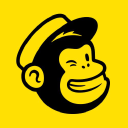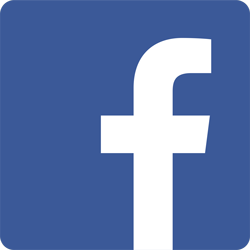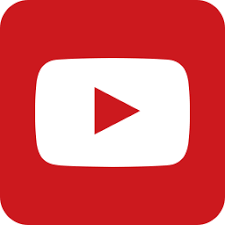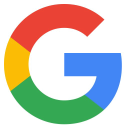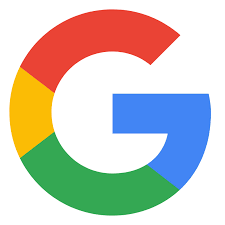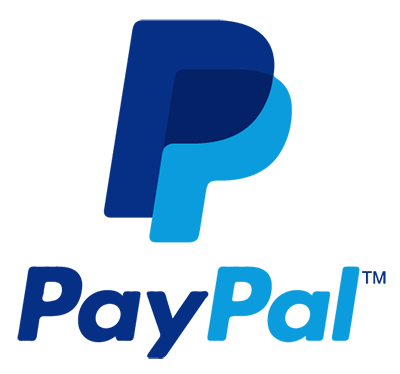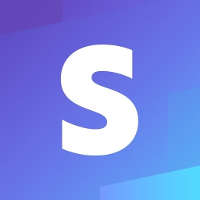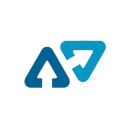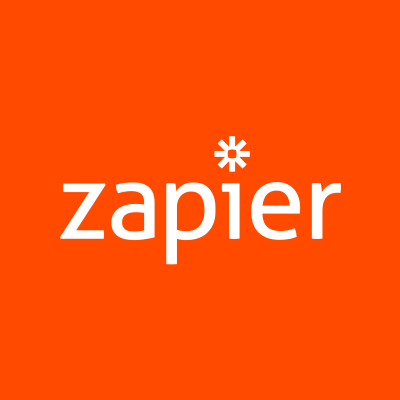We Work With Some Of The Most Famous Musicians In The World (And Make $2.1M Per Year)
Hello! Who are you and what business did you start?
Hello! My name is Adrian Wood and I’m the Founder of Anno Domini Nation, the pioneers of digital music licensing.
We’re a multi-platinum production company that has worked with artists like 50 Cent, Snoop Dogg, E40, Lil Wayne, Wu-Tang Clan, Tech N9ne, and companies like Coca-Cola, Ford, BMW, NBA, NFL, and UFC. Here’s a Trailer of some of our credits.
20+ years ago we introduced the world to non-exclusive audio licenses for our beats, which has since become the standard way for artists and brands to procure instrumental music. Since then, we have also expanded into licensing artist feature vocals from celebrity artists, mainly in Hip Hop and R&B.
We have a large community of artists, and our mission is to democratize the music industry by leveling the playing field between the major labels and independent musicians.
In 2024, our business grossed $2.1 million, a better-than-100 % increase from the year prior.
Here’s a picture of my wife and I at the recent Grammys:

What's your backstory and how did you come up with the idea?
For the longest time, Anno Domini was my producer brand, a vehicle to post my music online and get feedback from other producers. I was going to school for business when I first started experimenting with “semi-legal” downloaded music production software, and becoming a music producer or even doing anything remotely music related for pay was not at all on my mind. I would post my beat creations on sites like MP3.com and SoundClick.com for fun, but before too long, artists hit me up asking to work together and buy beats from me for their songs. Cue the lightbulb moment!
At the time, the online producer community was very small; everyone knew everyone, and collaborations with artists to create records were tedious. Every beat was sold to just one buyer, with exclusive rights, and upon receipt of a check through the mail, audio files would get burned onto a CD and then mailed out, along with a contract, to the artist. For a lot of us who didn’t live in major US cities (I grew up in the middle of nowhere in Germany and later went to school in the UK) and didn’t have access to network with artists in studios or at shows, it was still better than nothing.
Ah, the good ol’ days…

However, I saw an opportunity to leverage technology and business practices that were already being used elsewhere, for our nascent hyper-niched online beat selling industry. This included: a) selling non-exclusive licenses to content instead of exclusive licenses, so the same beat could be sold to multiple buyers, at a more attractive/affordable price point, b) embedding PayPal “buy now” buttons on our music websites to allow artists to instantly purchase online, and c) creating downloadable content and digital license agreements that allowed customers instant access to their purchases.
Those all seem like obvious decisions today, but back then they were pretty revolutionary and gave birth to millions of “online beat sellers” who built their income and careers off the back of those ideas.
One of our biggest wins over time has been our email list. I truly believe a business’s power lies in its list. Not necessarily the size of it, but the quality of it.
Take us through the process of building the first version of your product.
Initially, our business was just me (back then as Anno Domini Beats), and I got started with a $20 subscription to SoundClick. Much like MySpace back in the day, they would let you customize the HTML code of your artist profile, and I used that ability to my advantage to “hack” my profile into a store, with purchase buttons and multiple upgrade options. Back then, SoundClick had one of the biggest communities of independent artists, and borrowing that traffic was the fastest way to start making money.
Putting together our first landing page took me a couple of hours, and after about a week of teaching myself basic HTML, tweaks, adjustments, and a self-made cobbled together logo, I had a semi-official looking beat licensing business online. As far as creating the “product”, I composed all of my beats in the Magix Music Maker, then Reason, and later FL Studio DAWs.
My first “business” website:

To be completely honest, the fact that I was making ANY money doing just the above and that I was having fun doing it, was already enough to satisfy 19 year old me. But pretty quickly, I went from earning a few $100’s to earning a few $1000’s. To the point where my online business was paying for my way through school with no debt, and some beer money to spare.
At the same time, SoundClick and similar sites like BeatStars and Airbit (formerly MyFlashStore) were turning into hubs for other producers to copy the same sales model, and I was able to ride the initial wave of excitement over online music licensing to create a cushy lifestyle business for the next 7 years or so. Right up until the moment I learned the hard lessons of being platform dependent, and having to choose between quitting music to get a “real” job, or choosing the red pill and setting up a “real” business…
Describe the process of launching the business.
In 2011 I decided to hire a web developer and create my own music licensing platform. In a way, my hand was forced, as traffic to my platform of choice had been steadily declining with the growth of new music repositories like YouTube, SoundCloud, or Spotify. Also, as one of the originators and biggest brands, I overestimated my sway with the people in power. I criticized SoundClick publicly and my page was deleted overnight. Shit! There was definitely a life lesson in there, and forevermore I’ve made sure all of my businesses are well diversified and not overly platform dependent in any direction - be that sales, marketing, lead generation, etc.
Instead of quitting, I decided to go bigger. I hired a team of 10 other music producers, and we put together our own library of licensable music. The first version of AnnoDominiNation.com was a WordPress based site, built for us by an outsourced team from a country with very low web dev costs. After over a year of development delays, it worked (sort of).
We were ready to launch this website monstrosity:

Luckily I had built a very loyal customer base over the years, mainly through an ethos of providing more value than any competitor, consistently, and we were able to siphon them to our new website. We also built a topline lead generation funnel through our channels on YouTube, Facebook, and Instagram, or more recently this rapidly growing public Facebook Group where hyperlinks in profiles/posts/stories and individual video or song uploads send traffic over to our own platform. I maximize traffic from third-party sites through tools like GroupsPro, which allows me to capture email addresses from individuals who join our Facebook group. Through such means, we were able to hit the ground running from launch!
Since launch, what has worked to attract and retain customers?
Soon after we officially launched Anno Domini Nation, Facebook Ads also rose to prominence. We missed the initial wave of Google Ads but fully embraced Facebook. To this day, Facebook Ads by far have given us the best ROI in terms of both attracting new leads and generating sales from product launches. While there was a multi-year lull (thanks to Apple) in Facebook Ads, the new Campaign+ settings are once again working a charm for us.
Through several iterations of our main store website, we finally landed on a design and functionality I’m happy with, and that our users enjoy spending time on:

We introduced a lot of features, for example, an Amazon style recommendation engine suggesting related beats to customers, that have optimized the experience all around.
One of our biggest wins over time has been our email list. I truly believe a business’s power lies in its list. Not necessarily the size of it, but the quality of it. We give out free tagged mp3 demos of all of our compositions on our website (for non-profit use), in exchange for joining our email list. These are all pre-qualified leads, coming to our website to find beats to record songs with.
We also have various evergreen campaigns giving away free beats as well as free artist marketing training to cold traffic, both through organic and paid means, to continuously grow our community. We’re able to spend money on many of these by creating self-liquidating offers that are presented to leads immediately after joining our email list. We then have a long evergreen email sequence that builds trust with our leads over time, and from there, we regularly present new monthly offer campaigns to maximize the lifetime value of our leads.
More recently, we have leveraged the insanely high open rates (90%+) of SMS and WhatsApp Messenger. In addition to collecting email addresses, we give out bonus incentives, such as a free beat, in exchange for a phone number. While we have over 250,000 email subscribers, we also rapidly grew our SMS subscribers to over 100,000 in the past few years.
From our core business of licensing individual beats, we have branched out and diversified Anno Domini Nation significantly. Today we have four core revenue pillars:

The store no longer just sells licenses to beats, but also to vocal recordings from celebrity artists. Furthermore, we introduced a monthly subscription service, the Inner Circle Artist Development Program, that gives subscribers early access to every new production we create, with a usage license, before they are publicly available on the store. Many of our customers will happily pay for convenience and special access.
Currently, the program has close to 1,000 subscribers with $32,000 in MRR. It’s great to be able to smooth out some of the slower sales months as a business, with reliable subscription income. A fantastic growth driver for our subscription program has been a $5 for 5-day trial offer. I like this better than a free trial, as it pre-qualifies leads as buyers and minimizes churn when that first monthly billing hits.
Next, we built a third-party network of platforms and partners that generate passive income for us. This includes digital service providers like Distrokid and CD Baby, which distribute our music to sites like Spotify and earn us streaming revenue. The same happens with sync libraries that use our music for audio-visual usage in TV, films, video games, etc. It’s a great way to leverage assets we already own as a business (beats) in novel ways, reaching novel listeners and customers (casual music fans, or multimedia users, as opposed to professional artists).
Finally, the most lucrative avenue of revenue in recent years has been our one-off product launches. Instead of selling individual beats, we decided to create “irresistible offers” of bundles of beats plus artist features plus adjacent products and services for artists, at attractive introductory price points. Everything an up-and-coming artist would want in a box, like this. It separates our offerings from all the other online music producers that exist today, essentially selling what has now become a commodity (individual beats).
We offer various order bumps and one-time offers to increase the AOV in our funnels, and we build urgency and scarcity with every launch through timed sales periods - usually 2 weeks - before removing an offer for good. Currently, we are testing running these product launches once a month, and will hopefully be able to double that output.
I expect that over the coming years, the explosive growth in funnel revenue will trickle down to all other revenue pillars as we build a deeper relationship with all our new leads and customers.
If you’ve never started a business before, don’t think too hard. Screw a business plan. Just dive in and figure things out as you go.
How are you doing today and what does the future look like?
The business grew from $770,000 in sales (22% profit margin) in 2021, to $1 million in sales (35% gross profit margin) in 2022. Then our growth accelerated again to $2.1 million in sales (53% profit margin) in 2023.
For 2024, we are projecting $3.3 million in sales (58% profit margin). It just goes to show, that even after 20 years in an industry, growth can come suddenly and from unexpected places. I do feel like to some extent we’re finally cracking the code in unlocking huge value for our customers while generating a massive windfall for our business.
We plan to steadily ascend customers up our value ladder:

One thing we are currently missing is a high ticket offer. As we look to the future, we would like to build out our ladder with an all-encompassing product/service combination for a select group of high-achieving artists. There’s also a lot of room to grow the subscription business, and of course, as I learn more about how business works, the multiples of a subscription-first business are quite attractive!
AnnoDominiNation.com currently has 42,000 registered users, which is still a small proportion of our 250k+ email list. We will be looking to encourage more interaction with our core site, and will also be building our subscription program directly into the site. We have plans to host big celebrity-endorsed song contests and other events directly on our site.
Our TAM of independent artists is estimated at $104.61 billion in 2024 and is expected to grow to $149.91 billion by 2029 (Mordor Intelligence). The percentage of independent artists making up the overall music market is also increasing, at 34.6% in 2022, up from 34% in 2021 (Midia Research). The trend towards independent artists and independent labels is set to only accelerate from here, through access to tools, resources, and services such as Anno Domini Nation. I feel we are well positioned to capitalize on this and become one of the premier go-to providers for independent artists’ needs. We are still capturing just a tiny slice of this market and there is ample room for growth.
What platform/tools do you use for your business?
Our website runs on a custom-built CRM. However, we use many third party platforms and tools for different functions, including Mailchimp and ActiveCampagin for email, and Twilio for SMS marketing.
I couldn’t get through a day without Google Sheets and Zapier. From accounting, to lead collection, calendar planning, SOPs, or simple note-taking, that’s the glue right there!
We also run our various sales funnels through ClickFunnels, amplified with tools like DeadlineFunnel for urgency, LeadDyno for affiliate tracking, and CF Pro Tools for advanced customization.
For our subscription service, we use Chargebee on the backend and have found it to be highly useful in automating many tedious tasks.
In terms of payment gateways, Braintree/PayPal plus Stripe (and by extension Affirm, Afterpay & Klarna) have been our go-to's. The bonus of having a great relationship with and sales volume through PayPal and Stripe is the access to increasingly larger working capital loans to accelerate business growth.
What have been the most influential books, podcasts, or other resources?
I used to read a lot of business books; some all-time favorites include “Dotcom Secrets”, “Ecommerce Evolved”, “Launch”, “Four Thousand Weeks”, and “Atomic Habits”. More recently, with two young boys in the household, I’ve had less time to read, but I do listen to podcasts like “My First Million” that always get me pumped up and excited to try something new.
Advice for other entrepreneurs who want to get started or are just starting out?
If you’ve never started a business before, don’t think too hard. Screw a business plan. Just dive in and figure things out as you go. If you want to start a business but don’t know where to start, figure out what interests you, copy what’s already working in that industry, and then make small improvements and differentiate yourself over time.
Are you looking to hire for certain positions right now?
We’ve already seen an explosion of growth over the last 2 years and are looking for advisors, or an experienced executive, ideally with knowledge of the music industry, who can help us to continue accelerating this trend.
Where can we go to learn more?
Our main website:
Feel free to reach out:

Download the report and join our email newsletter packed with business ideas and money-making opportunities, backed by real-life case studies.

Download the report and join our email newsletter packed with business ideas and money-making opportunities, backed by real-life case studies.

Download the report and join our email newsletter packed with business ideas and money-making opportunities, backed by real-life case studies.

Download the report and join our email newsletter packed with business ideas and money-making opportunities, backed by real-life case studies.

Download the report and join our email newsletter packed with business ideas and money-making opportunities, backed by real-life case studies.

Download the report and join our email newsletter packed with business ideas and money-making opportunities, backed by real-life case studies.

Download the report and join our email newsletter packed with business ideas and money-making opportunities, backed by real-life case studies.

Download the report and join our email newsletter packed with business ideas and money-making opportunities, backed by real-life case studies.

